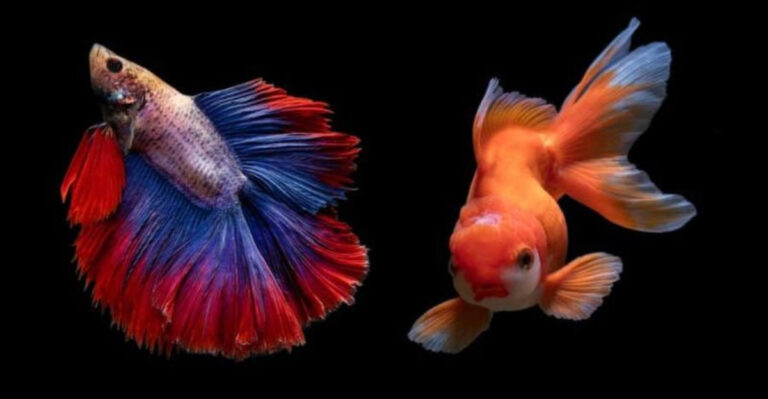14 Common Myths About Pet Nutrition In The U.S. Debunked
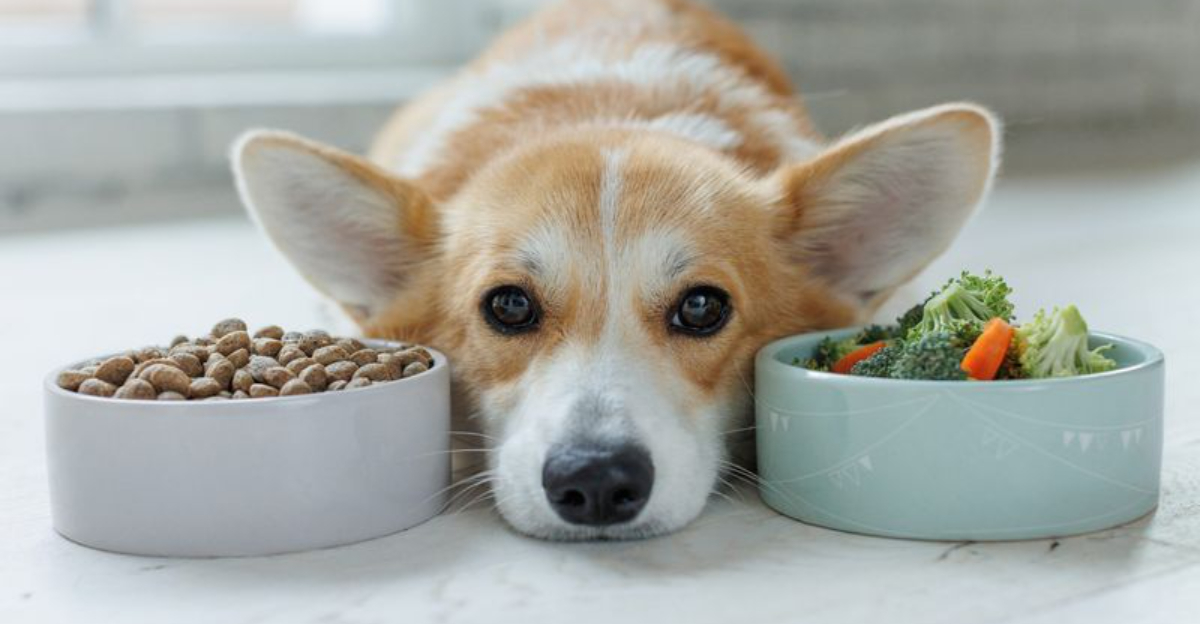
Ever wonder if what you’re feeding your furry friend is actually good for them? With so much conflicting information floating around, it’s hard to separate fact from fiction when it comes to pet nutrition.
Many pet owners unknowingly follow outdated or incorrect advice that could impact their pet’s health.
Let’s clear up some common misconceptions about what our four-legged family members should really be eating.
1. Grain-Free Diets Are Always Healthier
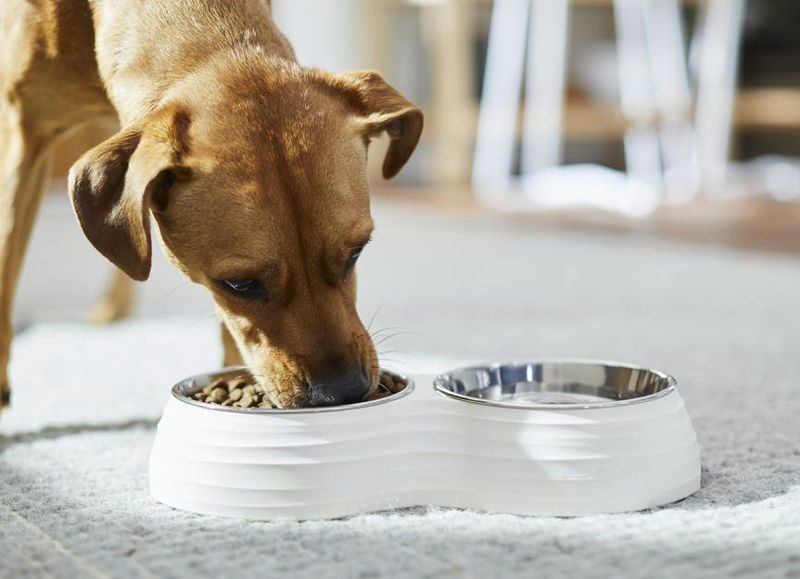
Unless your pet has a diagnosed grain allergy, grain-free foods offer no special benefits. In fact, some grain-free diets have been linked to heart problems in dogs.
Most pets digest properly prepared grains just fine. Whole grains provide essential nutrients, fiber, and energy that contribute to overall health.
2. Raw Meat Is Natural And Therefore Better
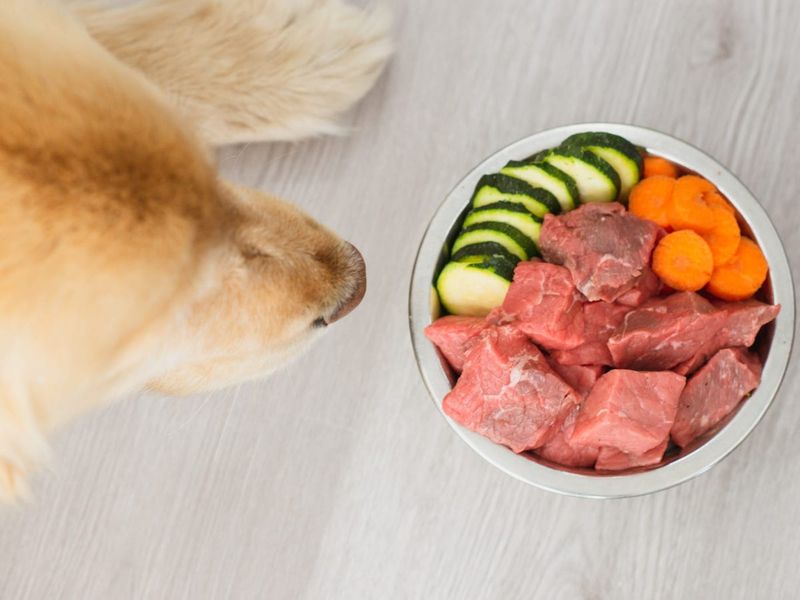
Wild ancestors ate raw meat, but that doesn’t make it safer for domestic pets. Uncooked meat can harbor dangerous bacteria like Salmonella and E. coli.
The risk extends beyond your pet – handling raw meat increases human exposure to these pathogens. Commercial pet foods are designed to provide balanced nutrition without these risks.
3. Cats Need Milk In Their Diet
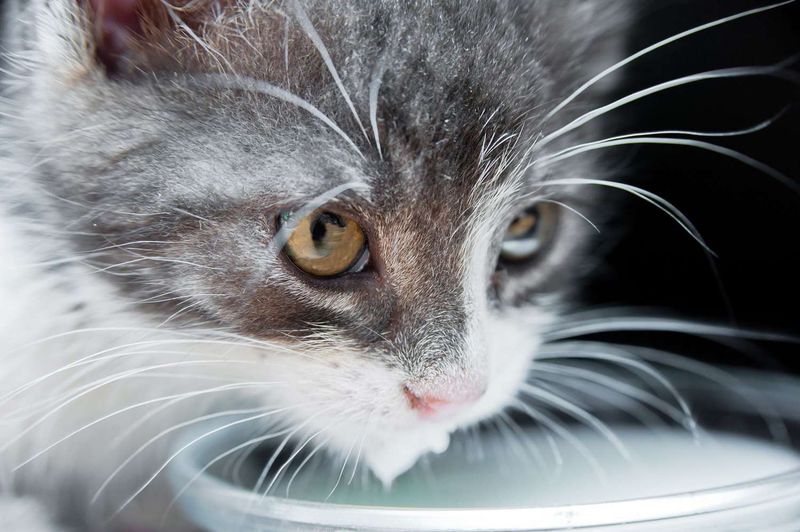
Surprise! Most adult cats are actually lactose intolerant. That bowl of milk might cause digestive upset, diarrhea, and discomfort.
After weaning, cats lose the enzyme needed to digest lactose properly. Fresh water is what cats truly need for hydration. If you want to treat your feline friend, try specially formulated cat milk instead.
4. Dogs Should Eat Only Meat
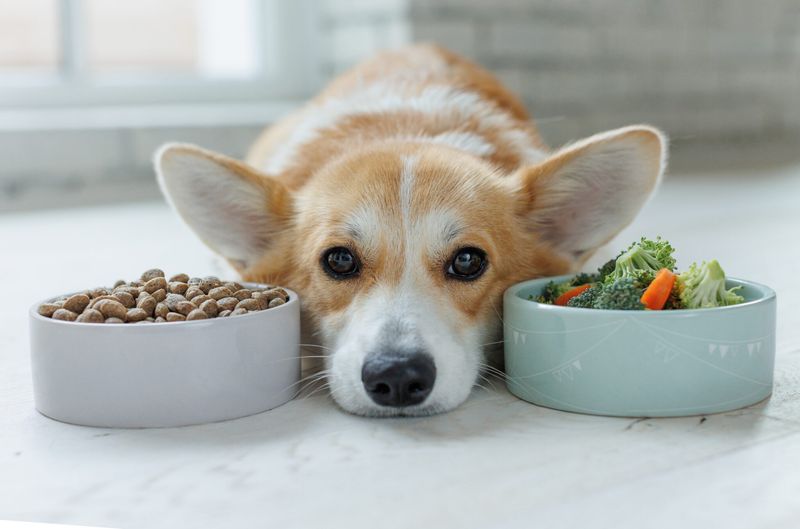
Contrary to popular belief, dogs aren’t strict carnivores. They’ve evolved alongside humans for thousands of years to become omnivores who benefit from varied diets.
Vegetables, fruits, and grains provide essential vitamins, minerals, and fiber that meat alone can’t deliver. A balanced canine diet includes a mix of protein sources and plant-based nutrients.
5. Homemade Pet Food Is Always Healthier Than Commercial
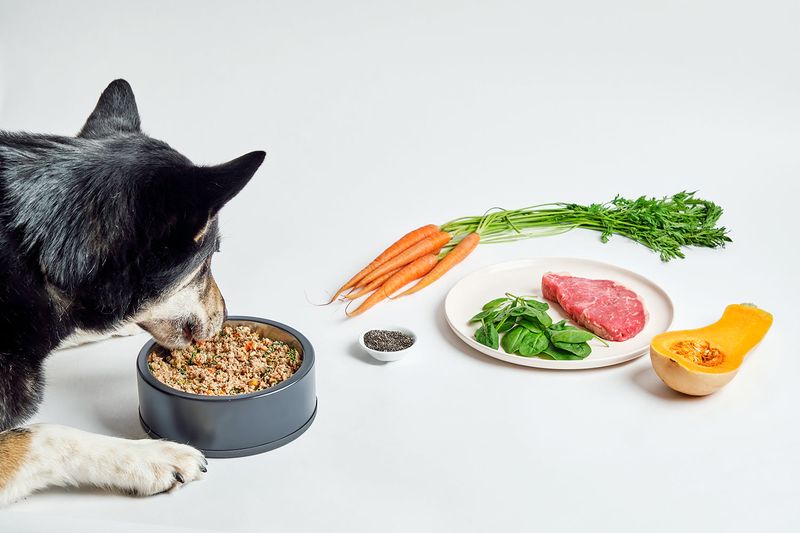
Whipping up meals for your pet sounds loving, but without proper nutritional knowledge, homemade diets often miss critical nutrients. Studies show many DIY recipes lack essential vitamins and minerals.
Commercial pet foods undergo rigorous testing to ensure complete nutrition. If you’re set on homemade options, work with a veterinary nutritionist to create properly balanced recipes.
6. One Meal A Day Is Sufficient For Pets
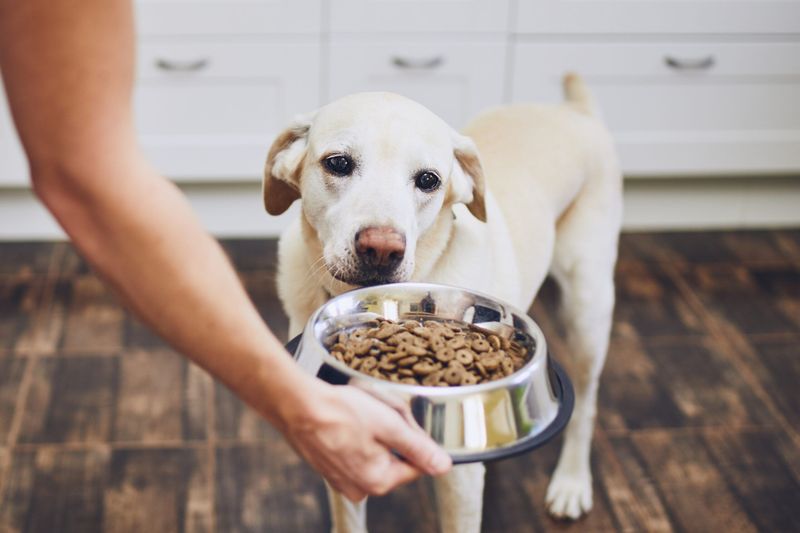
Would you want to eat just once every 24 hours? Multiple smaller meals better match pets’ natural eating patterns and help maintain stable blood sugar levels.
Large single meals can cause uncomfortable bloating and may increase the risk of dangerous stomach twisting in larger breeds. Most adult pets do well with two daily feedings, while puppies and kittens need more frequent meals.
7. Table Scraps Make Good Treats

That pleading look is hard to resist, but human food often contains ingredients harmful to pets. Onions, garlic, chocolate, and artificial sweeteners can be toxic.
Even non-toxic foods may be too fatty, salty, or spicy for sensitive pet digestive systems. Human food treats also contribute to obesity and can create begging behaviors that are hard to break.
8. Premium Pet Foods Are Just Marketing Hype
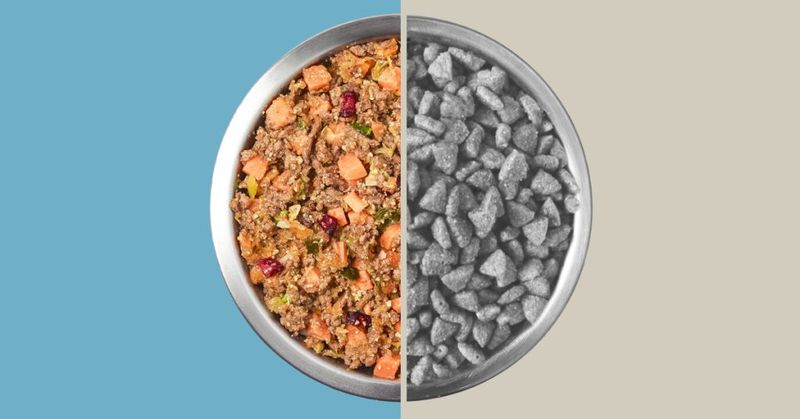
Quality ingredients actually matter! Premium foods often use higher-grade protein sources and fewer fillers, resulting in better nutrient absorption and smaller, less smelly waste.
Cheap foods typically contain more corn, wheat gluten, and by-products that provide less usable nutrition. While price doesn’t guarantee quality, examining ingredient lists rather than just marketing claims helps identify truly better options.
9. Puppies And Kittens Need The Same Food As Adults
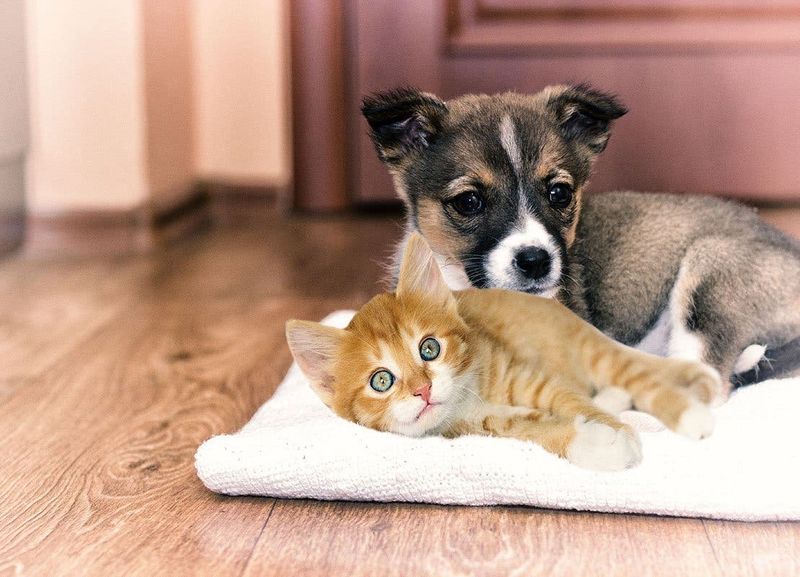
Growing bodies have completely different nutritional needs! Young animals require more calories, protein, and specific nutrients to support rapid development and brain growth.
Adult pet foods lack these crucial growth components. Using life-stage appropriate formulas ensures proper development without excessive calories that could cause growth problems or obesity later in life.
10. All Pet Foods Are Basically The Same
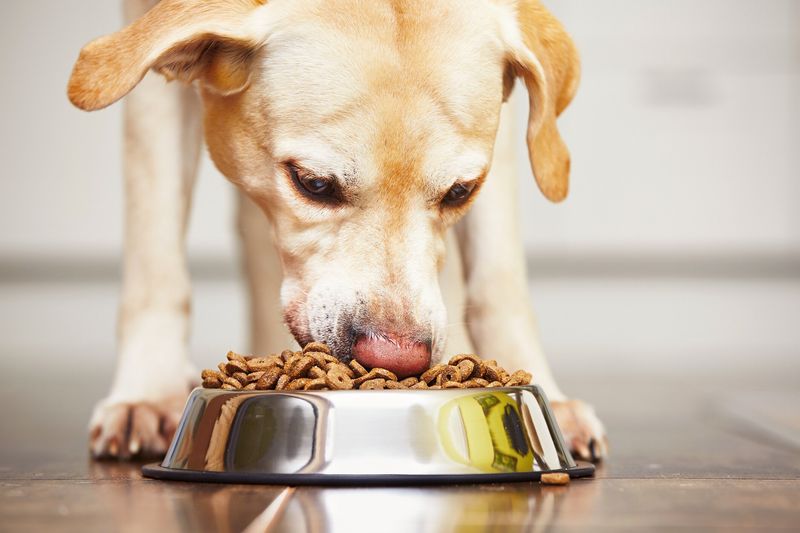
Pet foods vary dramatically in quality, ingredients, and nutritional profiles. Some contain primarily meat protein, while others rely heavily on plant proteins and fillers.
Manufacturing standards also differ widely between brands. Foods designed for specific health conditions can help manage diseases like kidney failure or diabetes. The right food choice depends on your pet’s age, activity level, and individual health needs.
11. Bones Are Safe Natural Treats

Forget those old cartoons showing dogs happily gnawing bones. Cooked bones can splinter, causing serious internal injuries or blockages that require emergency surgery.
Even raw bones carry risks including broken teeth, choking, and bacterial contamination. Safer alternatives include specially designed dental chews or durable rubber toys that satisfy the urge to chew without the dangers.
12. Cats Can Be Vegetarian
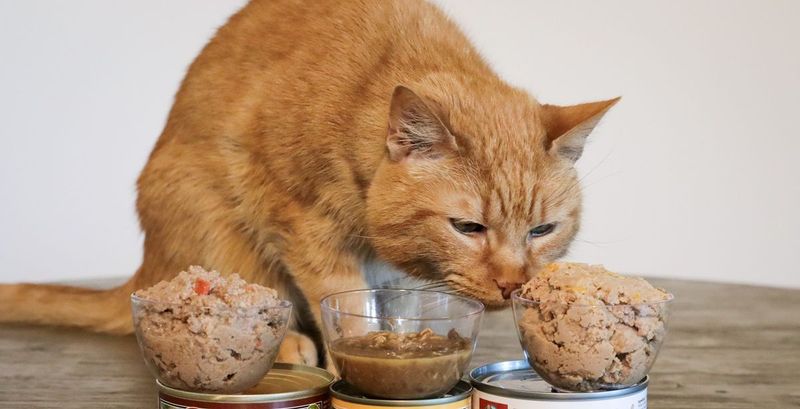
Felines are obligate carnivores – their bodies require nutrients found only in animal tissues. Without meat, cats can’t produce essential compounds like taurine and arachidonic acid.
Deficiencies lead to serious health problems including heart disease and blindness. Unlike dogs, cats have never evolved to digest plant matter efficiently. Their biological needs make meat non-negotiable for proper nutrition.
13. Free Feeding Is Convenient And Fine For Pets
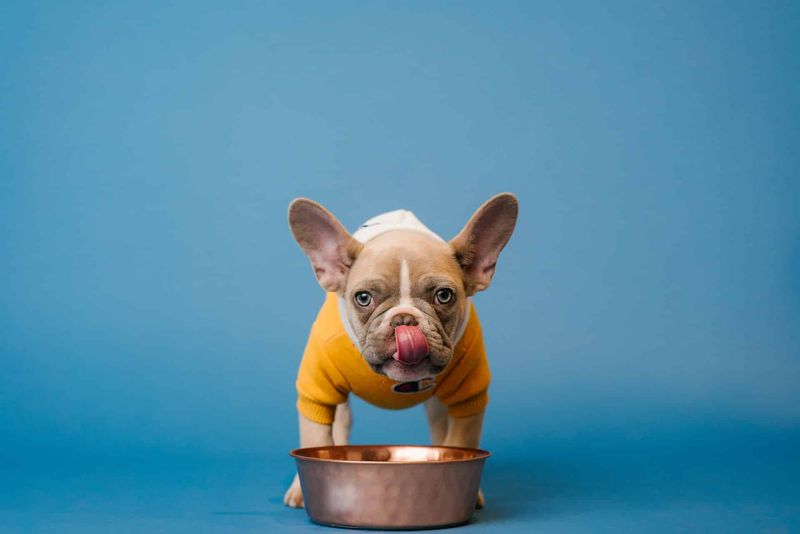
Leaving food out all day seems kind – pets can eat whenever they’re hungry, right? Unfortunately, free feeding often leads to obesity as many pets will eat beyond their needs.
It’s also harder to notice changes in appetite that might signal illness. Measured meals at regular times help maintain healthy weight and make it easier to monitor food intake and digestive health.
14. Supplements Are Always Needed For Optimal Health
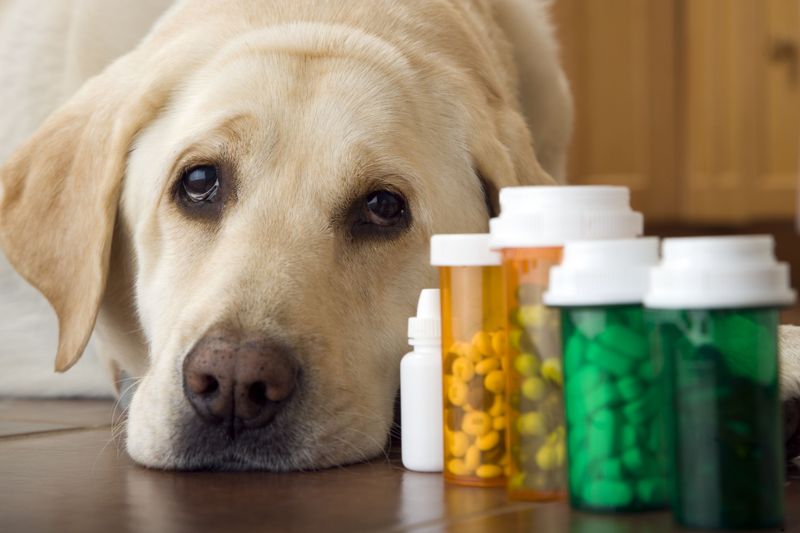
The supplement industry would love you to believe your pet needs numerous additives, but complete commercial pet foods already contain required nutrients in proper proportions.
Random supplementation can actually create dangerous imbalances. Specific supplements should only be used when recommended by a veterinarian for diagnosed deficiencies or conditions. Most healthy pets get everything they need from quality commercial diets.






